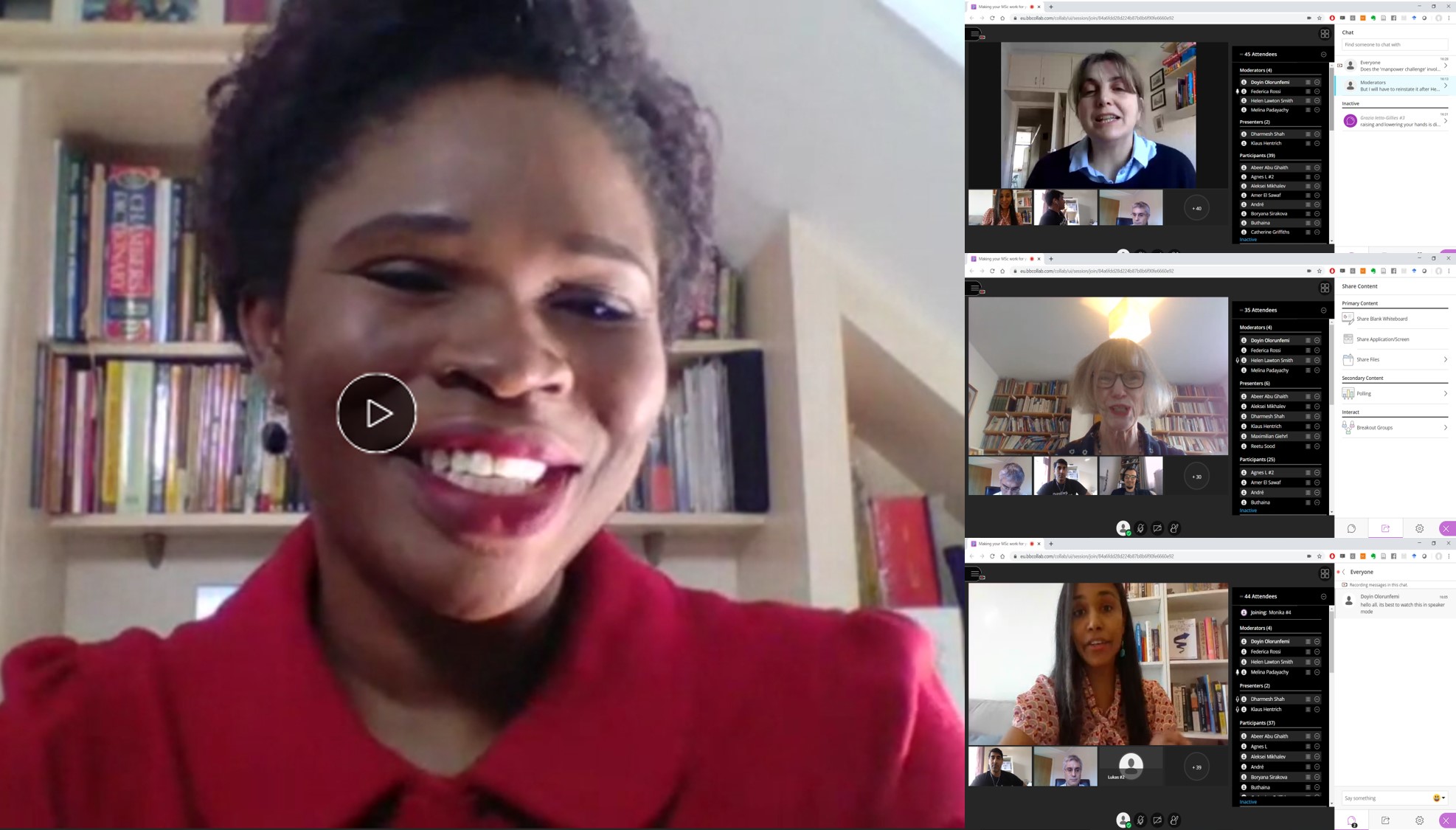It’s been a steep learning curve as staff across Birkbeck have rapidly moved all teaching and learning online, so it was fantastic to see a turnout of nearly fifty people for the first of what we hope will be many Centre for Innovation Management Research (CIMR) webinars: Making Your MSc Work for You.
With contributions from industry leaders, alumni and current staff and students, the webinar proved an insightful way to share how MSc Business Innovation students can make the best use of the opportunities offered by the CIMR. This blog shares the highlights from the webinar, which is available to view in full online.
Positioning yourself in the innovation landscape
The evening began with a Q&A with two innovators in industry: Dharmesh Shah, Innovation Manager at Airbus and Klaus Hentrich, Global Product Manager, Genomics at SPT Labtech. Led by Melina Padayachy, CIMR alumna and author of The Innovator’s Method: Bringing New Ideas to Markets, the discussion began by considering the role of Innovation Manager.
Both Dharmesh and Klaus described their role as one of wearing “many hats”. Dharmesh, for example, views himself as “Enabler, disrupter, challenger, technology scout, coach and mentor to entrepreneurs.”
Unsurprisingly for such a varied job role, the pair identified many key skills for aspiring innovation managers. For Dharmesh, the drive to self-learn is essential, but so is the ability to take a hands-off approach and empower innovators to do their work. For Klaus, a key skill to acquire is deep domain expertise: engaging with opinion leaders and being able to put forward a case to senior management and finance teams.
When asked about the challenges Innovation Managers face, Dharmesh joked that “the list is extensive!” Among these are the availability of resources, specifically manpower, to work on ideas, finding stakeholders to take new ideas to the market and knowing when to say ‘enough is enough’ while taking the learning points from every endeavor.
Klaus highlighted the pace of change in the technological landscape as a significant challenge: “We’re aiming at a fast-moving target and we can’t tell where it’s going next.” In addition, he discussed the difficulty of prioritising ideas and finding “the best among the good.”
Dharmesh and Klaus named several books that have influenced their approach as innovators – a list of these can be found at the end of this article.
The CIMR and You
So, what can the CIMR do to support MSc students on their journey? Dr Federica Rossi, Senior Lecturer in Managerial Economics, shared some of the CIMR’s activities and ways for students to get involved in the community.
The CIMR runs events such as this one throughout the year and invites policy makers and people in industry to share their ideas. MSc students are warmly invited to attend these and propose ideas for future events.
In addition, the CIMR blog shares the Centre’s latest activity and students can be profiled here or suggest topics for blogs on the site.
MSc students who write excellent dissertations may also be invited to develop a working paper for the peer reviewed CIMR series, which has visibility on sites such as repec.
Alumni are also invited to keep in touch with the CIMR, to attend events and to come back as guest speakers to share their expertise.
Making Your Dissertation go Further
The final part of the session saw PhD student Doyin Olorunfemi discussing how to get the most from the dissertation experience with a panel of Business Innovation alumni.
MSc students were advised to work on a topic they are passionate about and to have an idea of how their dissertation might contribute to their future career. There was no shying away from the fact that the dissertation is hard work, but alumni were keen to point out that the right topic can also be enjoyable. Above all, they agreed, just start!
Further Information
Further Reading
- The Lean Startup – Eric Ries
- Exponential Organizations – Salim Ismail
- The Innovator’s Dilemma – Clayton Christensen
- Think Wrong – John Bielenberg et al.
- Flash Foresight – Daniel Burrus
- Superforecasting – Philip Tetlock, Dan Gardner et al.

